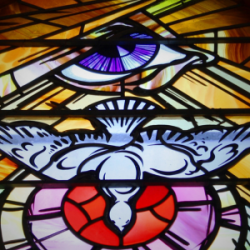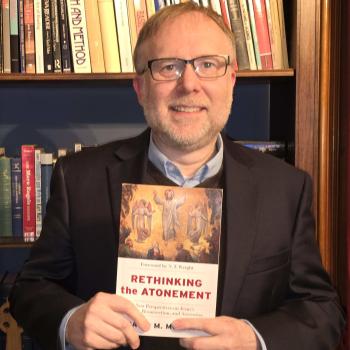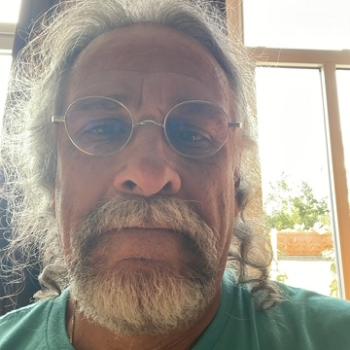Ohhhh, I knew something bad was coming. And then, he said: "Andrew, you called everyone you didn't like a fag. When you got mad at me, I was a fag. Anyone you didn't like was a fag. You said more stuff like that than any other person I've ever met in my life."
That's when it really sank in! Here was a guy I respected so much. My high school coach! And what did he remember about me? He didn't remember all those records I set. He didn't remember how good I was as an athlete for him. What did he remember? All this stuff I shouted about. That was how he remembered me. I wasn't a hero to him. I was funny and, now, an oxymoron.
So, the big message in your book is to stop beating up on gay and lesbian people, even in the language we use when we think we're just with straight friends, right?
Definitely! That's the first main point I try to communicate. Even our language really matters.
And you're saying that the first big step must come from conservative Christians -- the people of faith who've been treating gay people like -- well, like "projects" to "fix."
Yes. I don't believe that anything can happen productively down the road unless we are the first ones to come and repent of the sin of homophobia. A lot of conservative folks will say to me: "Just because I don't agree with you, Andrew, doesn't mean that I'm homophobic."
But we're standing in a sad place now after decades and decades of consistent Christian behavior against gays and lesbians. We've had this consistent movement to put out gay and lesbian people. We're the ones who have to begin this process of bridge building.
You're calling for a years-long commitment.
When we approach the gay community, after all these years of condemning, we have to scrape and claw our way back to respectability in the eyes of people with whom we're hoping to become friends. Until we prove over a long time that we have changed our behavior -- and that we're treating these new friends with real respect -- then we shouldn't expect anything significant to happen in our communities.
One thing about your book that I thought was a wise choice: You decided not to review all the standard back-and-forth arguments about biblical passages. This is a Rob Bell approach to the issue. Rob simply refuses to engage in that long-running debate. You do the same thing in this book -- you refuse to fight the old battles all over again.
There's no point to my going through all of that. You can go to Amazon and type in a search for the Bible and homosexuality and you'll find something like 1,500 books. That's the legacy of the culture war. Hundreds and hundreds of books tell us how to take this Greek word or that Hebrew word and expound this whole theology out of it.
If you want that, go look on Amazon. But, in the end, we don't wind up in a helpful place with all of those endless arguments. Continuing to refight those battles does no good. We just dig the trenches deeper and deeper into the sand. I'm saying: This fighting must stop. As Christians, we must be the first ones to stop it.
Do you have hope for a more peaceful, inclusive future?
Our entire country is changing. It's inevitable. A couple of years ago, I could not have told you honestly that I was hopeful. But, now? Now, I can look people dead in the eye and with 100 percent conviction, I can say: Yes, there are bridges being built. There are families and college campuses and congregations and entire communities changing. I'm pressing onward with this work and I am hopeful.
Just recently, I was asked: "Do you enjoy what you do?" The question threw me for a loop. I'd never been asked that.
And what did you say?
Actually, I said: "No, I don't enjoy the tough parts of this work. I don't enjoy being attacked by critics. I don't enjoy the daily grind of trying to push for change. But you know what I do enjoy? I enjoy knowing that I'm doing what the Lord wants me to be doing at this moment." That's how I answered.
The work is difficult, but the Lord is so faithful. Just when I was thinking about how tough it is -- just when I was praying more and more for the strength to continue -- I started getting these big waves of emails and messages telling me: I read your book and it energized my life.
Now? At the moment, I have a ridiculous amount of hope, because I see the change unfolding and I am a part of it. I know the spirit is moving forward. I can see it every day.
This article was originally posted at Read the Spirit and is reprinted with permission.
David Crumm is an author, journalist, and filmmaker with more than 20 years experience as a Religion Writer for the Detroit Free Press, Knight-Ridder newspapers, and Gannett. Crumm is now the Editor of ReadTheSpirit -- a new online home for important voices in religion and spirituality.




